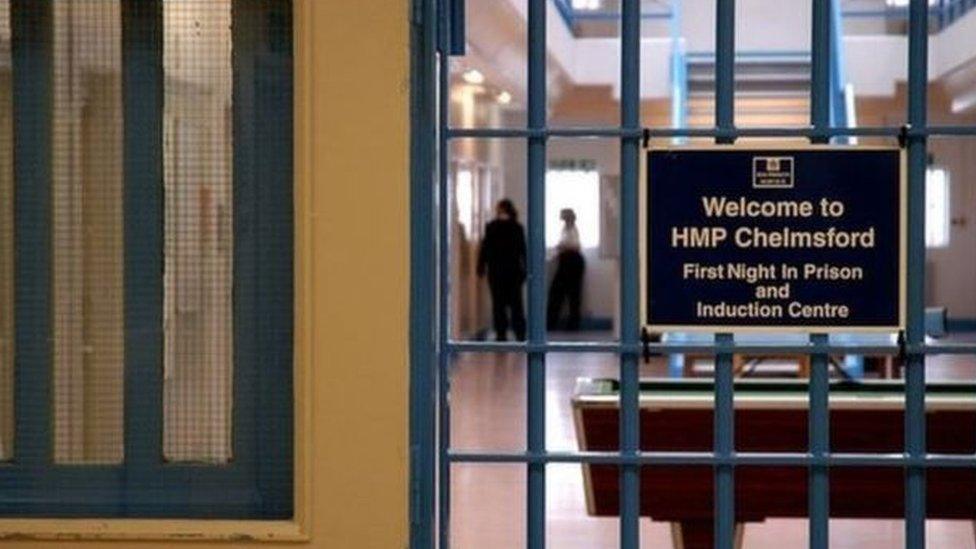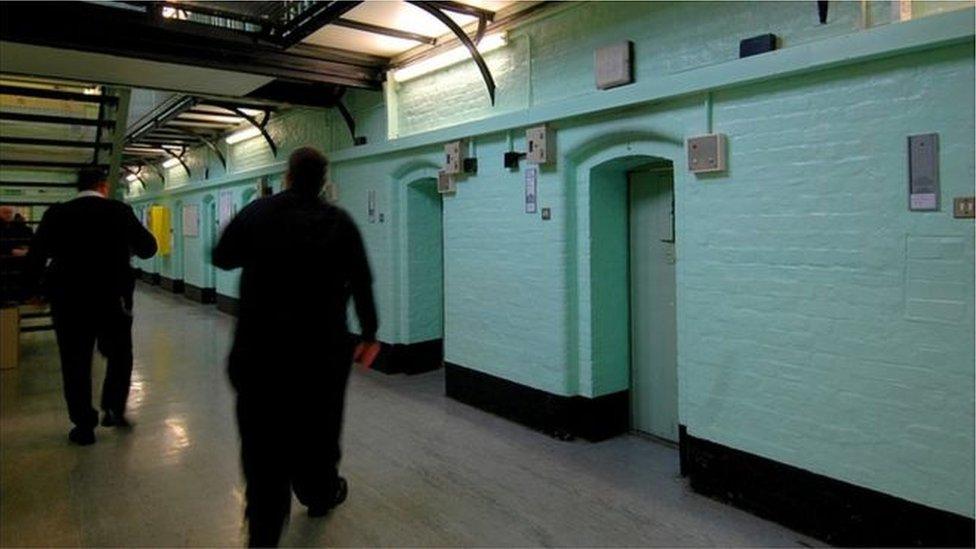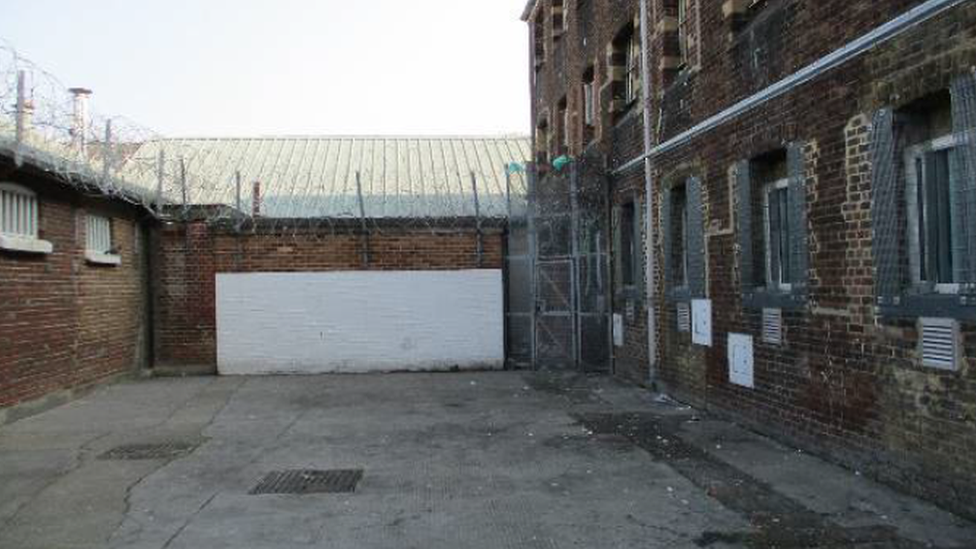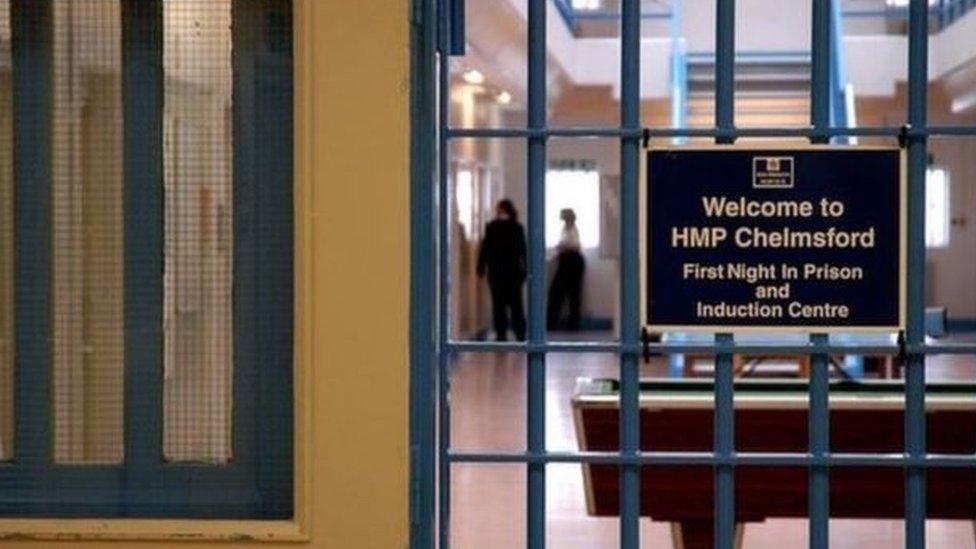HMP Chelmsford 'failing to tackle drugs'
- Published

In 2018 nearly half of all prisoners failed drugs tests at HMP Chelmsford
A prison where there are "significant concerns about safety" still needs to make improvements tackling drug taking, a report said.
An Independent Review of Progress (IRP) at HMP Chelmsford in Essex found drugs "were easy to obtain".
Nearly half of all inmates at the prison, which can hold up to 700 people, failed drugs tests last year.
The jail's "progress" in other areas had been undermined by that "failure" to tackle drugs, inspectors said.

The review found the prison had made good progress in improving living conditions
IRPs are a type of visit made by HM Inspectorate of Prisons (HMIP) to check if prisons are implementing recommendations made at previous inspections.
In October 2018, HMIP made 10 recommendations to improve the prison.
Good progress was being made in improving living conditions and reasonable progress in reducing levels of violence, improving care provided by staff and governance of the jail, the report said.
But it had made "insufficient progress" in reducing drug taking, consulting with prisoners, time out of cells, exercise and assessment of resettlement needs.
Organised gangs
HMIP said its chief inspector, Peter Clarke, had "warned that the failure since 2018 to make sufficient progress in tackling drugs in HMP Chelmsford, which holds many members of organised crime gangs, risked undermining other progress".
Mr Clarke recommended the prison be provided with "more up-to-date drug detection equipment" to help reduce the supply of drugs.
The prison, which was built in the 1830s, had a population of about 640 at the time of the review as a refurbishment was under way.
This had "delivered much-needed improvement to the conditions of many showers, toilets and cells", the report said.

The prison has a segregation exercise yard for inmates
While levels of violence had continued to increase, the review found action taken by the prison had led to a reduction in serious incidents.
There were 17 suicides at the jail between 2010 and 2018.
Despite stating that the number of suicides at the prison "remained worrying", Mr Clarke said the prison was providing a higher quality of care to prisoners who were in crisis or at risk of self-harm.
- Published7 January 2019

- Published16 October 2018

- Published12 October 2018
